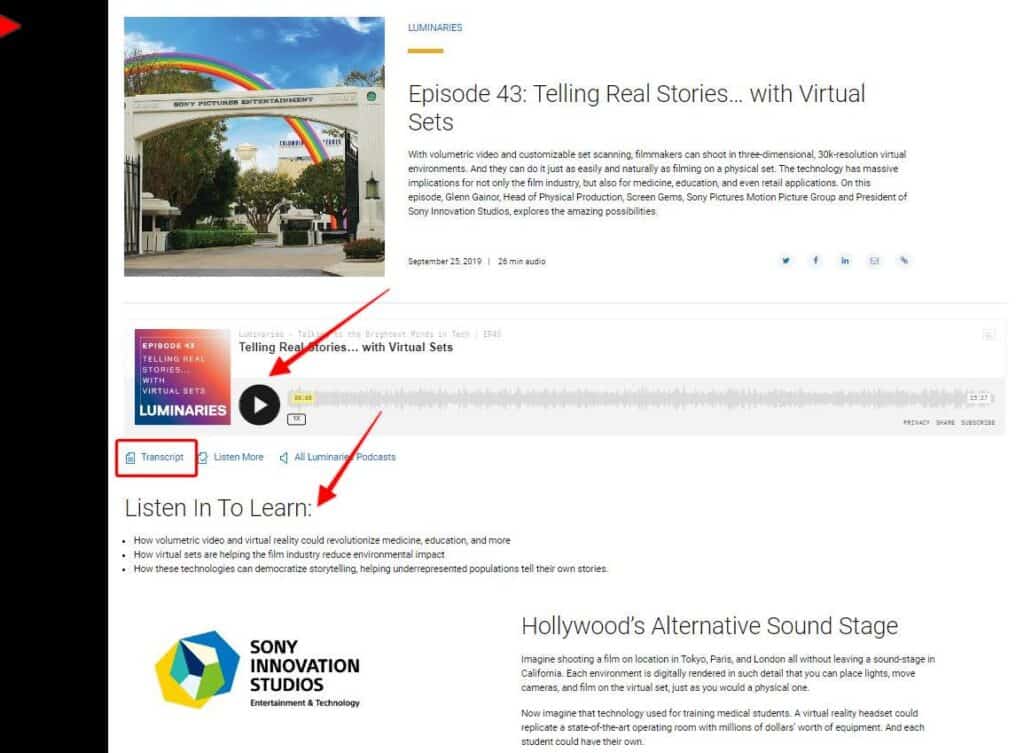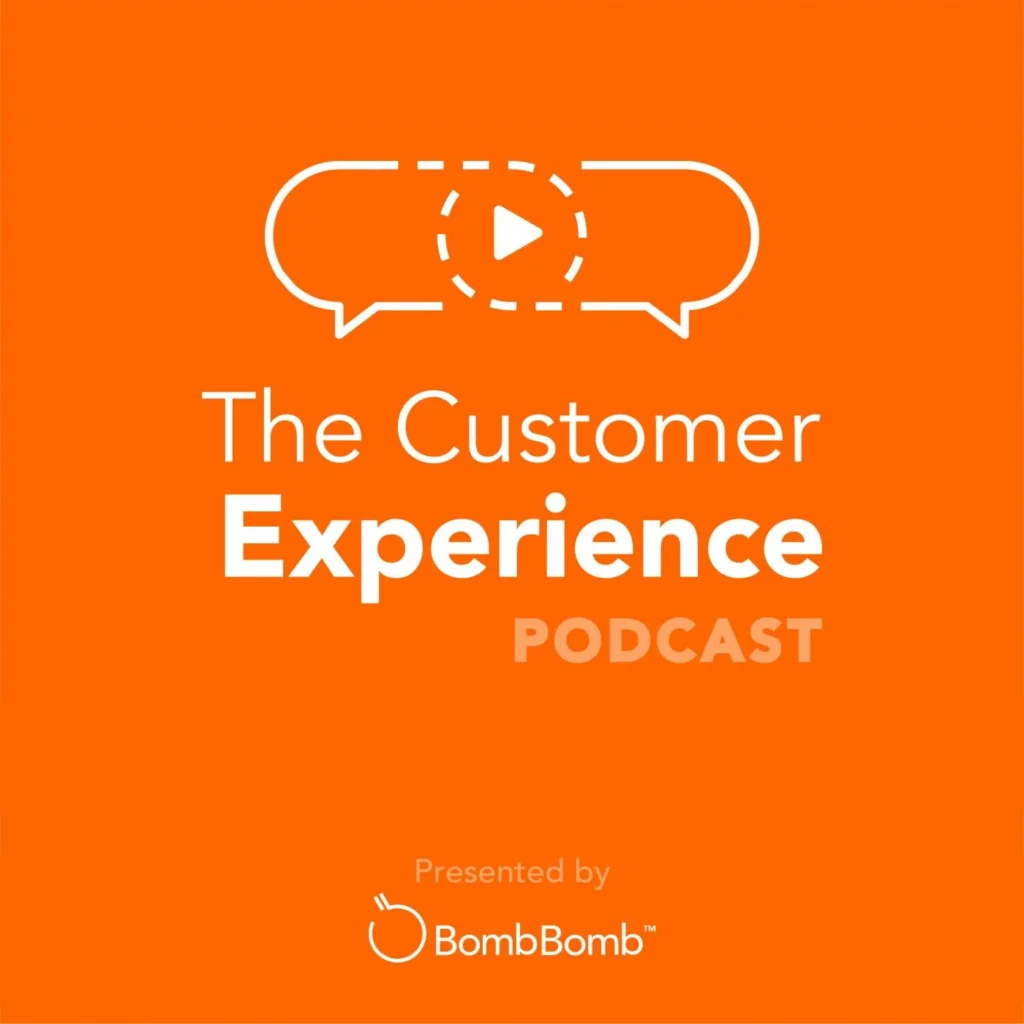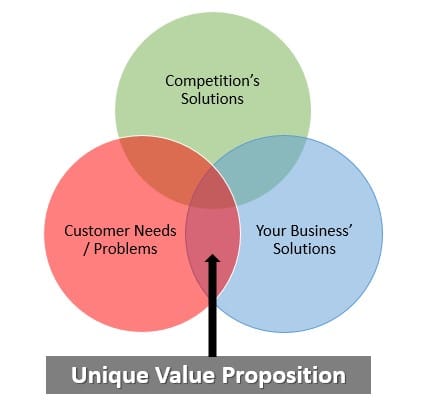As a B2B organization, you undoubtedly want more brand awareness and new customers. You also want to be a thought leader in your industry. You can have all of that with a B2B podcast
B2B podcasting is a critical part of many organizations’ B2B marketing strategy. This type of content strategy is a powerful way to build an audience of potential customers and achieve consistent B2B growth.
In this article, we explain B2B podcasting, its benefits, and teach you how to start your own B2b podcast.
What is a B2B Podcast?
A B2B podcast is a podcast produced by a B2B company in order to build authority and attract potential customers. This kind of content marketing is part of your B2B marketing strategy.
The most successful B2B podcasts typically use an interview format. In each episode, the host interviews a interesting guests and influencers, and explores their experience and insight. Your audience benefits by being exposed to influential sources and new information.
In Dell Luminaries is a great example of a B2B podcast. Each episode interviews a fascinating guest from the tech world. They have in-depth conversations with technology luminaries about best practice for business growth.
The Customer Experience Podcast is another great example. On this show, listeners learn how revenue leaders work across their teams to create internal alignment, achieve desired outcomes, and exceed customer expectations in a personal and human way.
The Benefits of B2B Podcasts
Podcasts are quickly becoming one of the most popular forms of content marketing. In fact, some content experts have dubbed podcasts “the new blogging.” Here are the benefits of starting your own B2B podcast.
1. Thought leadership
Presumably, you and the other people in your organization have genuine expertise on your topic. A podcast is the perfect medium to share that knowledge with the world. It allows you to be long-winded, share personal stories, and explain concepts in-depth. This kind of knowledge transfer just isn’t possible in other formats (like blogging) where users tend to skim, skip around, and consume quickly.
2. No barriers to entry
Compared to other marketing channels, podcasting can be one of the easiest and low-cost ways for businesses of all sizes to get started. All you need is a recorder, audio editing software and somebody to talk to. Submitting your show to Apple Podcasts, Google Podcasts, Spotify, and other listing apps is simple and easy.
3. Differentiate for your business
What makes your business unique? You probably have a differentiator that sets you apart from your competition. A B2B podcast gives you a unique opportunity to tell that story and ultimately help you stand out. This is a key component of B2B business lead generation.
4. Create brand awareness
Podcasting can help create brand awareness for your business. This is one of the biggest hurdles facing most organizations today, especially if you aren’t a billion-dollar company with unlimited resources.
If you’re delivering quality content that educates, informs or entertains your audience, they’re more likely to remember your brand and come back for more. Over time, this will help build trust with your audience.
5. Accessible content
Podcasting is one of the few types of content that’s available on-the-go. Your audience can’t read blog posts, newsletters, or Twitter feeds while they exercise, drive, walk the dog, or cook dinner. Podcasts, however, which don’t require a listener’s eyes or hands, and are available on mobile devices, fill this gap well.
6. Easy collaboration with guests
One of the best ways to submit yourself as a thought leader in your industry is to collaborate with other reputable leaders, industry experts, and entrepreneurs. If you invite a well-known personality on your show, some of their trust and value rubs off on you, at least in the eyes of your audience.
These kinds of collaborations are easy for your guests. You don’t need them to write anything down, promote for you, or attend an event. They just need to hop on Zoom for a short chat about a subject they already know well. Many thought leaders love jumping on a podcast because it’s easy marketing for them.
7. Humanize your brand
Audiences want to make human connections with brands, but it’s easy for B2B brands to feel cold and corporate. Podcasting gives your brand a voice. It helps your audience connect with real problem solvers who have gone through the same struggles they’re dealing with. You can amplify this effect by bringing real people from your organization on the show.
Grow Your Audience with Castos
Castos gives you all the tools and expert guidance you’ll need to create an incredible podcast that will make a lasting impression for your brand.
How to Start a B2B Podcast
Creating a B2B podcast is similar to starting a typical podcast. You’ll need to pick a format, find a podcast host, choose a topic, get the right podcasting equipment, choose a name, design a recording space, and assemble a team. You may also find it helpful to hire a podcast production service.
Before diving in, we strongly recommend reading our complete guide on starting a podcast. This tells you everything you need to know about preparing and launching a show.
You’ll also want to read through our podcast marketing guide. It helps to have an idea of how you’ll promote your show as you launch it.
All that said, there are some differences about starting a B2B podcast as opposed to starting a traditional show. Let’s go through each of those differences.
Create clear business goals and objectives
Before you start your B2B podcast, it’s important to ask yourself, “How will this show support my business goals? What do I expect to get out of this?”
Most B2B podcasts aim to generate thought leadership content in order to build authority for their brand, generate deep connections with their audience, and turn listeners into customers.
Whereas a typical podcast wants to reach as many people as possible, a B2B podcast wants to reach the right people, even if that’s just a small group. In most cases, B2B podcasts monetize by convincing listeners to engage directly with the company, not through traditional podcast monetization methods like advertisements, affiliate partnerships, syndication, or product sales.
Next, set some reasonable goals for your show and the metrics you’ll track. How many listeners do you expect to acquire? How many leads will you generate? How will you measure your success at becoming a thought leader? What steps will you take to achieve these goals?
Identify your unique value proposition
As of June 2022, there are more than 2.4 million podcasts. If you want your show to be successful, you need to add some kind of unique value that isn’t available with other shows.
Work with your marketing team to find a differentiator that makes your show special. Do you have unique experience and case studies? A special way of solving problems? Access to an exclusive group of guests?
Podcasting is personal, so don’t be afraid to share your brand’s story with your audience. Think beyond your products and services. You aren’t podcasting to sell directly. Instead, sell your passion and expertise.
Once you identify your unique value, come with some concise language that describes it. You need a way to explain your value in one or two sentences.
Keep an eye on your competitors
Your competitors in the same B2B space are likely in the podcast game as well, so it’s important to take note of what they’re doing. You shouldn’t reproduce their strategy, but it’s smart to listen to their podcast episodes, subscribe to their newsletter, and read their social media posts and comments.
Drill deep into your target audience
As a B2B podcast, your audience is probably narrower than you think. For instance, if you provide services to commercial real estate companies, your audience is not “anyone who owns commercial real estate.” Your audience is only the segment that’s willing to buy products and services like yours. Trying to appeal to anyone outside of your audience is a waste of time for a B2B podcast. Strategies like list stacking can help focus your efforts and better target your true audience.
Add your podcast to your company website
As a B2B podcast, you probably don’t need to create your own podcast website. You can say. You can simply add a section to your existing company website for your show.
This section of your website should contain information about your show, the hosts, and the reason you are podcasting in the first place. Add links to your social media profiles and your shows page on the major podcast listening apps.
Furthermore, include a list of links to each episode. Each episode should have its own page with a media player, show notes, and a complete word-for-word transcript of the episode. These assets boost your site’s SEO and make your show accessible to all types of listeners.

Leverage your company’s promotion channels
Since the purpose of your show is to create authority around your brand and collect leads, you shouldn’t be afraid to use your existing distribution channels, such as your company social media profiles, newsletter, YouTube channel, and blog posts.
That’s a good idea to create your own distribution channels specifically for the podcast. New listeners will look for your show’s newsletter or social media profiles, so you want to be available.
Be careful with sponsorships
As your show grows, advertisers may want to sponsor you in order to leverage your audience for their business. Sponsorships are tempting because they can reduce your expenses – and therefore your risk – but they come at a price: Some listeners simply don’t want to listen to ads, especially if they are pressed for time.
Instead of selling time to advertisers, focus on converting listeners to customers. Give them good reasons to contact your company to buy your products and services.
Finish each episode with a call-to-action
Each time you end an episode, be sure to give your listeners something to do. A call-to-action encourages them to engage further with your brand and become a deeper member of your audience. This type of nurturing helps them make the decision to become customers later.
For instance, you might ask them to visit your site and download a resource, sign up for a webinar, or leave their thoughts on your LinkedIn post. If you don’t have anything significant for them to participate in, simply ask them to leave a rating and review for your show.
Publish consistently
The key to building an audience that converts into customers is consistent publishing. If you publish a few new episodes and disappear for a few months, your audience will move on to a more reliable creator that meets their demands for high quality content.
In the beginning, it’s better to start slow with your publishing frequency until you get the hang of podcasting. Over time, you can build up to a faster publishing schedule.
B2B Podcast Key Takeaway
When it comes to digital marketing and content marketing, you have a lot of options. You’ll need to choose the content strategy that’s right for you and your organization. A B2B podcast is a powerful tool for anyone who wants to establish themselves as a thought leader and drive leads for their business. Use the tips we explained above to start your own B2B podcast.





